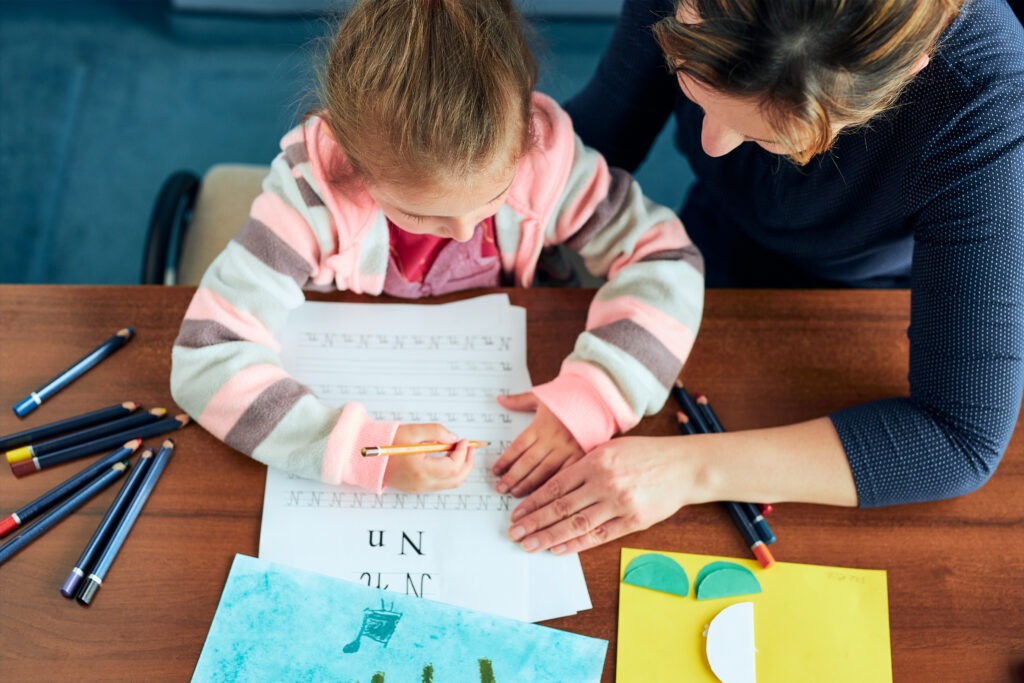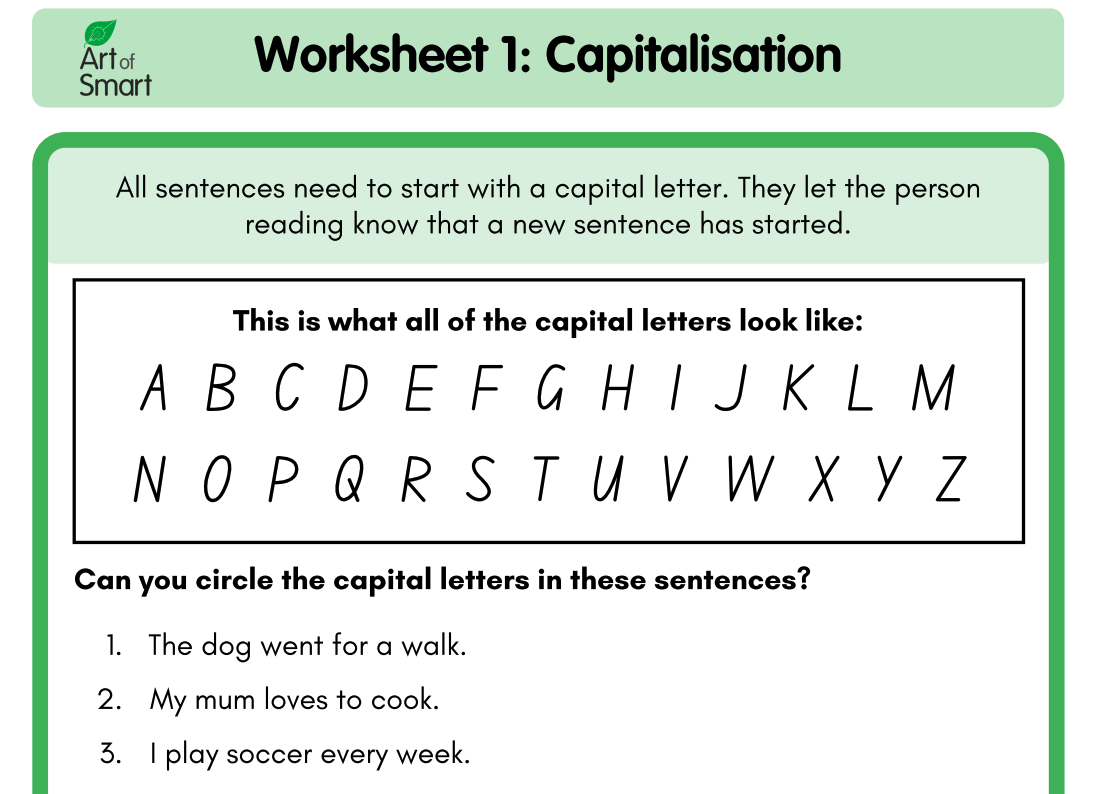Trying to get your child to understand punctuation by using capital letters and full stops? Lucky for you, we’ve created several worksheets for Kindergarten students on these types of punctuation!
These worksheets contain a variety of activities for your child to work through and get some more exposure to using capital letters and full stops in different contexts.
What are you waiting for? Keep scrolling to gain access to our punctuation worksheets!
Sample of Our Kindergarten Punctuation Worksheets
English Skills
Download Our Kindergarten Punctuation Worksheets
Searching for punctuation worksheets for different year groups?
If you have a child in another year group, don’t stress! We’ve also got sheets just for them that you can download for FREE — have a look:
Year 1 | Year 2 | Year 3 | Year 4 | Year 5 | Year 6
Sample of Our Kindergarten Punctuation Worksheets
To give you a taste of what our Kindergarten punctuation worksheets look like, you can check out our preview below:
For the full worksheet and more, download our resource below!
English Skills
Before Kindergarten students can fully comprehend the uses of full stops and capital letters, they need to have a solid grasp of the alphabet and what letters look like.
Once they’ve understood the alphabet, they then start developing their vocabulary and reading skills, while simultaneously learning punctuation concepts.
Learning the Alphabet
For your child to become familiar with punctuation, they need to have a foundational understanding of other literacy skills. One skill is knowing the alphabet and how it’s used to form words and language.
Recognising the sounds made with the ‘hard alphabet’ as well as the ‘soft alphabet’ (also known as the phonetic alphabet), will help to develop their reading skills. When they are able to distinguish how each letter sounds on its own, they can begin to connect letters to form basic sounds and words — and eventually sentences!
Discover 3 simple strategies to help your child learn the alphabet here!
Vocabulary
When your child is confident with the alphabet, the next thing you’ll want to build on is their vocabulary!
Why is vocabulary important?
Knowing a variety of words helps your child to communicate effectively with you and the people around them. Additionally, an extensive vocabulary allows your child to create interesting sentences to describe things when talking to people.
Check out different strategies you can use to help your child develop their vocabulary here!
An excellent way to build vocabulary is by learning words from spelling lists, and getting consistent exposure to those words through repetition.
Download our FREE spelling worksheets here for Kindergarten students!
Punctuation Use Through Capital Letters and Full Stops
Constructing sentences requires a thorough understanding of punctuation types, such as capital letters and full stops. A basic sentence uses these two types!
It’s essential for your child to understand the purpose of capital letters at the start of sentences and for names.
Furthermore, they need to understand how a full stop indicates the end of a sentence.
Looking for the next step? Check out our Year 1 Reading Comprehension Worksheets to see what’s coming on your child’s learning journey!
Download Our Kindergarten Punctuation Worksheets
We’ve created 5 punctuation worksheets for your child to practise with, which you can download for FREE below!
Looking for some extra help for your child with English?
We have an incredible team of English tutors and mentors!
We offer tutoring and mentoring for students in Years K-12 in a variety of subjects, with personalised lessons conducted one-on-one in your home, online or at one of our state of the art campuses in Hornsby or the Hills!
We’ve supported over 8,000 students over the last 11 years, and on average our students score mark improvements of over 20%!
To find out more and get started with an inspirational English tutor and mentor, get in touch today or give us a ring on 1300 267 888!
Jessica Loch is a K-6 English Resource Designer at Art of Smart in her second year at the University of Sydney studying Primary Education. She is passionate about learning and helping young students to grow and improve.





